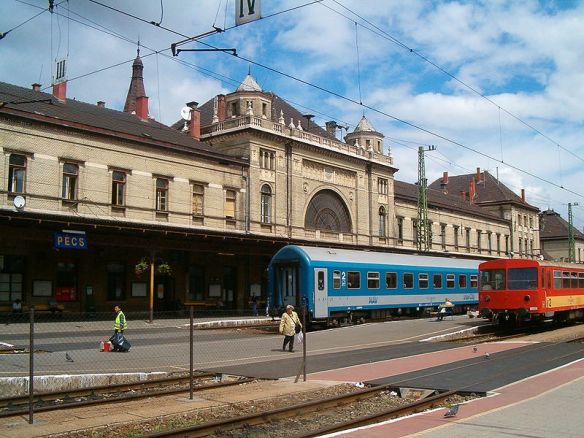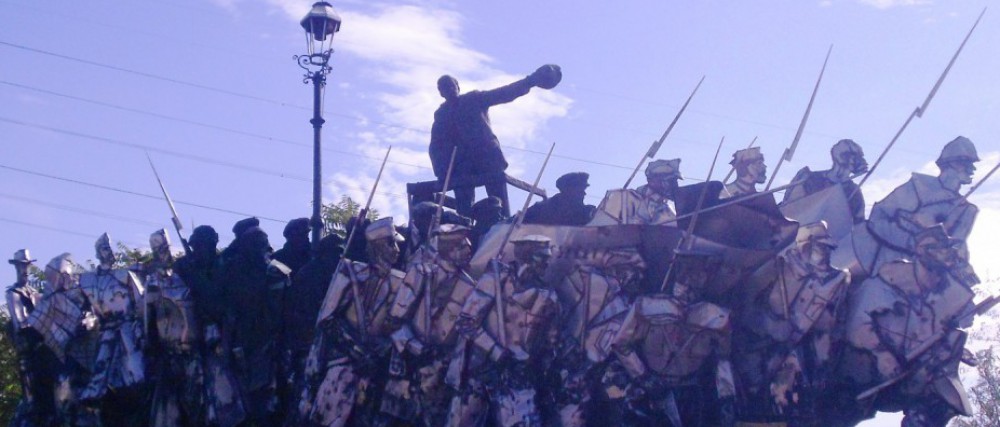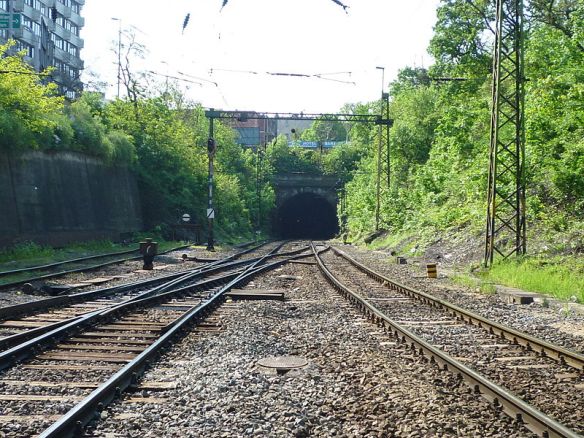A lonely feeling descended upon me during departure at the Pecs Train station. I boarded the train for Budapest, found a seat and stored my belongings. I then looked out the compartment window at those still waiting to board the train. There was a middle aged woman being seen off by her parents. Hugs, tears and last goodbyes were exchanged. She got on board and took a seat across from me. As the train began to pull away she looked out the window with tears cascading down her face. She tried to smile, but this led to more tears. This scene made me realize just how far from home I actually was at the moment. No one was going to say goodbye to me or be waiting for my arrival on the other end of the line. Traveling solo is great until it’s not. If you ever want to really know how much home and family means to you, go off to a distant land where you cannot speak the language and do not know a single soul in the country. Then watch a last goodbye or a first hello between family members and friends. An unforgettable sensation of loneliness will overcome you. At least that is what I felt as the train pulled out of Pecs.

Point of Departure – Pecs Train Station (Credit: Váradi Zsolt)
Home Is Where The Hurt Is– A Life Abroad
For me, travel is as much about the people you meet, as the sights you see. Some of my most vivid recollections of trips concern the strangers I have met. They have sometimes confirmed, sometimes denied what I have spent years learning about the region. This happened on the train trip from Pecs to Budapest. The woman who had been crying earlier struck up a conversation with me. She spoke decent English, but had trouble understanding some of the things I said. We were soon joined by an older man who sat beside her. His English was excellent, so much so that he could act as a translator. The woman told me she was traveling back to Germany where her husband was from. They lived in Munich, but she was originally from Pecs and her parents still lived in the city. Germany was a fine place, salaries were high, but it would never be home. Her experience was not rare.
Ever since Hungary and several other Eastern European nations joined the European Union in 2004, their citizens have been heading west where jobs are more plentiful and opportunity abundant. Romantic ties have also lured many Hungarians, the majority of which are women, to the west. By one estimate there are a couple of hundred thousand Hungarians living in France and Germany, while over 50,000 now call Great Britain home. The money may be good and the living standards higher, but nothing can replace home. The tears in this woman’s eyes expressed that. She could always go back home, but only for a while.
A Transylvanian Tale – From Stranger To Confidant
I was thousands of miles from home on a train in southern Hungary. None of my family or friends had any idea exactly where I was at that moment. I was surrounded by strangers, but suddenly did not feel so alone. The company of this woman, in addition to the man who was translating for us, made me feel as though I belonged. We were no longer strangers, more like confidants for a handful of hours. Life means so much more in moments like these. My attention soon turned to the impromptu translator whose English was impeccable. He looked to be in his late 50’s, thoughtful and well-spoken. He began to tell me a little bit about himself. He was not from Hungary, but Transylvania, a region still home to hundreds of thousands of ethnic Hungarians. The mythical land of Dracula was much more than its popular image allowed. It was filled with people who made the best out of their situation.
This man was the first Transylvanian I had ever laid eyes on in real life. He did not have fangs, wear a cape or inspire terror. He was not a vampire, but a professor. I never did learn exactly why he was traveling through southern Hungary or onto Budapest. That was because we spent most of the trip discussing what it had been like to live as an ethnic Hungarian in Transylvania before the Iron Curtain collapsed. He said the situation had been extremely difficult. The regime of Nicolae Ceausescu persecuted Hungarians as well as Romanians. He said that Ceausescu wanted “to kill all of us.” Whether this was true or not, who was I to argue with a man who had lived through that period. The historical evidence shows that Ceausescu used ethnic Hungarians as a convenient scapegoat. The man did not tell me anything that I had not already read, but it was still fascinating to meet a Hungarian who had lived through the Ceausescu years. I wanted to reach out and touch him just to see if he was real. When he talked about persecution it was done in a matter of fact manner, as though this was something to be expected during that time. He was living proof that stoic vigilance is one of the best antidotes to repression.
A Handful Of Hours, A Lifetime of Memories – The Memory Makers
It comes so soon, the moment when there is nothing left to wait for. The train slowly rolled into Budapest-Deli Station (Budapest South Station). The two people I had shared the journey and a bit of their life’s stories with would soon become little more than a memory, albeit a vivid one. The fleetingness of travel can be jarring. People appear and disappear for no discernible reason. In this instance, there was only a quick good-bye, what more could there be. I would never see either of them again, but the short time we spent together stayed with me. Why is that? Scientists who study memory say that we remember what was most relevant to us. Those who appear in our memories years later, for no apparent reason, must have somehow seemed relevant to us at the time. The woman from Pecs and the man from Transylvania were relevant to my loneliness. The few hours I spent with them had cured it.

